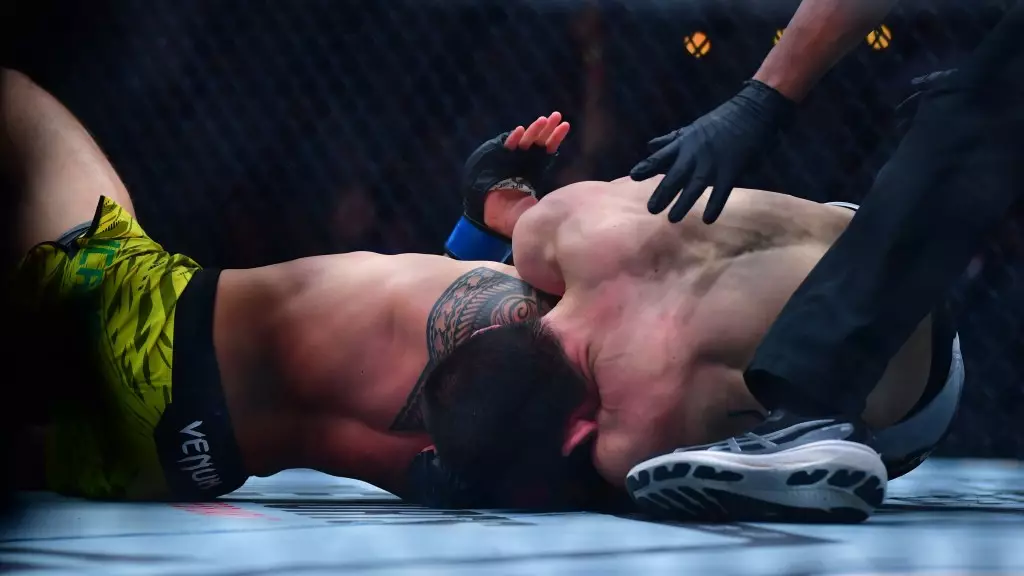Paddy Pimblett, a rising star in the UFC lightweight division, did not hold back his discontent following Renato Moicano’s quick submission loss to Islam Makhachev at UFC 311. Moicano, a seasoned fighter with a respectable record, succumbed to a D’Arce choke within mere seconds, much to the disbelief of fans and fighters alike. This match, held at the Intuit Dome, was notable not just for its outcome but for the way it highlighted the pressures and responsibilities that fighters assume when they step into the cage. Pimblett’s raw reaction reveals the emotional intensity that often surrounds competition in the UFC, where expectations can weigh heavily on shoulders already burdened by the quest for glory.
Pimblett’s explosive critique emphasized a broader sentiment within the fighting community— that those who enter the octagon should exhibit relentless determination, even in the face of daunting challenges. With comments like “Go asleep, lad – go out on your shield,” he urged Moicano to demonstrate more resilience instead of tapping out quickly to a well-executed move from Makhachev. This sentiment echoes a collective ethos in mixed martial arts (MMA) where fighters are often celebrated not just for victories, but for their spirit and willingness to persevere against the odds. The discussion surrounding fighter mentality is pivotal; in a sport characterized by its brutality and unpredictability, how much heart a fighter shows can be as significant as victory itself.
The circumstances of Moicano’s fight against Makhachev further complicated the narrative. Stepping in on short notice after Arman Tsarukyan withdrew was a testament to Moicano’s willingness to seize an opportunity that many would shy away from. Although credit is due for his bravery, Pimblett argues that such an opportunity requires not only courage but also a commitment to giving one’s all. “You’re never going to get that opportunity again,” Pimblett remarked, suggesting that opportunities in the MMA world are fleeting and must be grasped with both hands. This raises crucial questions around preparation and mindset—can a fighter truly be ready to face the elite, like Makhachev, without full preparation?
Moicano’s rapid defeat brings attention to a persistent issue in the world of MMA: how a fighter’s reputation can be impacted by a swift loss. The perception of weakness can linger long after the final bell, influencing future matchups and fan support. For aspiring talents like Pimblett, such scenarios underscore the vital importance of resilience, strategy, and the mental fortitude necessary to withstand the pressures of elite-level competition. The disappointment expressed by Pimblett is not just a criticism of Moicano’s performance; it reflects the broader frustration felt within the sport when fighters appear to underperform against their potential.
While Pimblett’s harsh critique of Moicano’s fight may seem brutal, it serves as a reminder of the intricate dynamics in UFC and MMA culture. Fighters are constantly under scrutiny, and their performances are deeply analyzed by peers and fans alike. In a sport where legacy is built on both victories and the tenacity to endure challenges, how one responds in the face of loss can redefine their career trajectory. Ultimately, the dialogue sparked by Pimblett’s comments invites a larger discussion about the expectations placed on fighters and the spirit that defines mixed martial arts.

